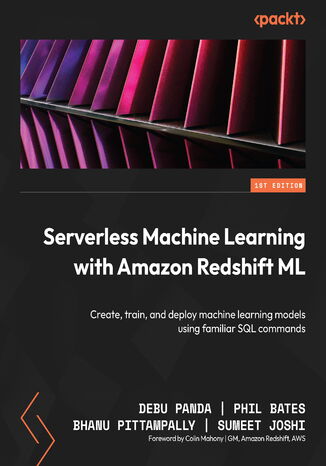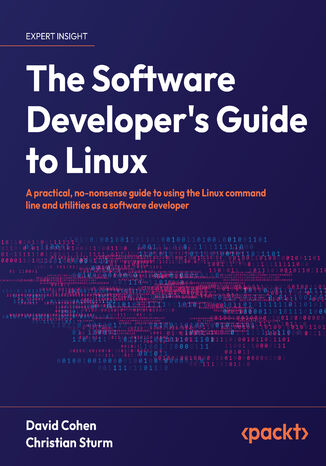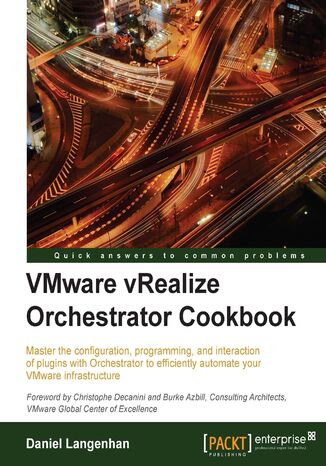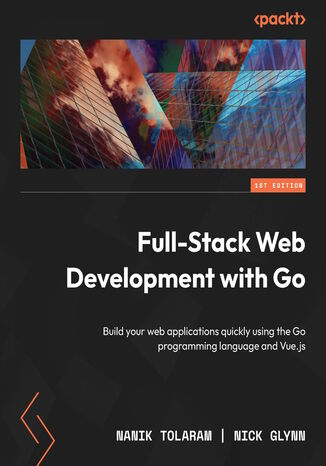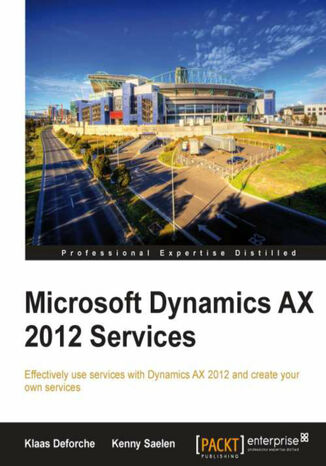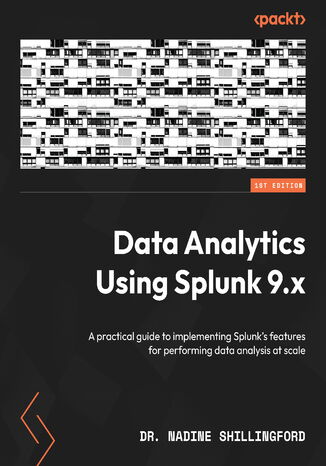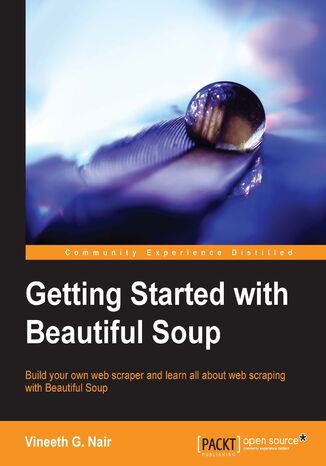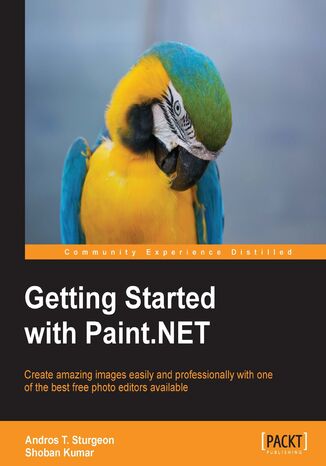Kategorien
E-Books
-
Wirtschaft
- Bitcoin
- Geschäftsfrau
- Coaching
- Controlling
- E-Business
- Ökonomie
- Finanzen
- Börse und Investitionen
- Persönliche Kompetenzen
- Computer im Büro
- Kommunikation und Verhandlungen
- Kleines Unternehmen
- Marketing
- Motivation
- Multimedia-Training
- Immobilien
- Überzeugung und NLP
- Steuern
- Sozialpolitik
- Handbȕcher
- Präsentationen
- Führung
- Public Relation
- Berichte, Analysen
- Geheimnis
- Social Media
- Verkauf
- Start-up
- Ihre Karriere
- Management
- Projektmanagement
- Personal (HR)
-
Für Kinder
-
Für Jugendliche
-
Bildung
-
Enzyklopädien, Wörterbücher
-
E-Presse
- Architektura i wnętrza
- Sicherheit und Gesundheit am Arbeitsplatz
- Biznes i Ekonomia
- Haus und Garten
- E-Business
- Ekonomia i finanse
- Esoterik
- Finanzen
- Persönliche Finanzen
- Unternehmen
- Fotografie
- Informatik
- HR und Gehaltsabrechnung
- Frauen
- Computer, Excel
- Buchhaltung
- Kultur und Literatur
- Wissenschaftlich und akademisch
- Umweltschutz
- meinungsbildend
- Bildung
- Steuern
- Reisen
- Psychologie
- Religion
- Landwirtschaft
- Buch- und Pressemarkt
- Transport und Spedition
- Gesundheit und Schönheit
-
Geschichte
-
Informatik
- Office-Programme
- Datenbank
- Bioinformatik
- IT Branche
- CAD/CAM
- Digital Lifestyle
- DTP
- Elektronik
- Digitale Fotografie
- Computergrafik
- Spiele
- Hacking
- Hardware
- IT w ekonomii
- Wissenschaftliche Pakete
- Schulbücher
- Computergrundlagen
- Programmierung
- Mobile-Programmierung
- Internet-Server
- Computernetzwerke
- Start-up
- Betriebssysteme
- Künstliche Inteligenz
- Technik für Kinder
- Webmaster
-
Andere
-
Fremdsprachen lernen
-
Kultur und Kunst
-
Lektüre
-
Literatur
- Anthologien
- Ballade
- Biografien und Autobiografien
- Für Erwachsene
- Drama
- Tagebücher, Memoiren, Briefe
- Epos
- Essay
- Science Fiction
- Felietonys
- Fiktion
- Humor, Satire
- Andere
- Klassisch
- Krimi
- Sachbücher
- Belletristik
- Mity i legendy
- Nobelpreisträger
- Kurzgeschichten
- Gesellschaftlich
- Okultyzm i magia
- Erzählung
- Erinnerungen
- Reisen
- Gedicht
- Poesie
- Politik
- Populärwissenschaftlich
- Roman
- Historischer Roman
- Prosa
- Abenteuer
- Journalismus
- Reportage
- Romans i literatura obyczajowa
- Sensation
- Thriller, Horror
- Interviews und Erinnerungen
-
Naturwissenschaften
-
Sozialwissenschaften
-
Schulbücher
-
Populärwissenschaft und akademisch
- Archäologie
- Bibliotekoznawstwo
- Filmwissenschaft
- Philologie
- Polnische Philologie
- Philosophie
- Finanse i bankowość
- Erdkunde
- Wirtschaft
- Handel. Weltwirtschaft
- Geschichte und Archäologie
- Kunst- und Architekturgeschichte
- Kulturwissenschaft
- Linguistik
- Literaturwissenschaft
- Logistik
- Mathematik
- Medizin
- Geisteswissenschaften
- Pädagogik
- Lehrmittel
- Populärwissenschaftlich
- Andere
- Psychologie
- Soziologie
- Theatrologie
- Teologie
- Theorien und Wirtschaftswissenschaften
- Transport i spedycja
- Sportunterricht
- Zarządzanie i marketing
-
Handbȕcher
-
Spielanleitungen
-
Professioneller und fachkundige Leitfaden
-
Jura
- Sicherheit und Gesundheit am Arbeitsplatz
- Geschichte
- Verkehrsregeln. Führerschein
- Rechtswissenschaften
- Gesundheitswesen
- Allgemeines. Wissenskompendium
- akademische Bücher
- Andere
- Bau- und Wohnungsrecht
- Zivilrecht
- Finanzrecht
- Wirtschaftsrecht
- Wirtschafts- und Handelsrecht
- Strafrecht
- Strafrecht. Kriminelle Taten. Kriminologie
- Internationales Recht
- Internationales und ausländisches Recht
- Gesundheitsschutzgesetz
- Bildungsrecht
- Steuerrecht
- Arbeits- und Sozialversicherungsrecht
- Öffentliches, Verfassungs- und Verwaltungsrecht
- Familien- und Vormundschaftsrecht
- Agrarrecht
- Sozialrecht, Arbeitsrecht
- EU-Recht
- Industrie
- Agrar- und Umweltschutz
- Wörterbücher und Enzyklopädien
- Öffentliche Auftragsvergabe
- Management
-
Führer und Reisen
- Afrika
- Alben
- Südamerika
- Mittel- und Nordamerika
- Australien, Neuseeland, Ozeanien
- Österreich
- Asien
- Balkan
- Naher Osten
- Bulgarien
- China
- Kroatien
- Tschechische Republik
- Dänemark
- Ägypten
- Estland
- Europa
- Frankreich
- Berge
- Griechenland
- Spanien
- Niederlande
- Island
- Litauen
- Lettland
- Mapy, Plany miast, Atlasy
- Miniführer
- Deutschland
- Norwegen
- Aktive Reisen
- Polen
- Portugal
- Andere
- Przewodniki po hotelach i restauracjach
- Russland
- Rumänien
- Slowakei
- Slowenien
- Schweiz
- Schweden
- Welt
- Türkei
- Ukraine
- Ungarn
- Großbritannien
- Italien
-
Psychologie
- Lebensphilosophien
- Kompetencje psychospołeczne
- zwischenmenschliche Kommunikation
- Mindfulness
- Allgemeines
- Überzeugung und NLP
- Akademische Psychologie
- Psychologie von Seele und Geist
- Arbeitspsychologie
- Relacje i związki
- Elternschafts- und Kinderpsychologie
- Problemlösung
- Intellektuelle Entwicklung
- Geheimnis
- Sexualität
- Verführung
- Aussehen ind Image
- Lebensphilosophien
-
Religion
-
Sport, Fitness, Diäten
-
Technik und Mechanik
Hörbücher
-
Wirtschaft
- Bitcoin
- Geschäftsfrau
- Coaching
- Controlling
- E-Business
- Ökonomie
- Finanzen
- Börse und Investitionen
- Persönliche Kompetenzen
- Kommunikation und Verhandlungen
- Kleines Unternehmen
- Marketing
- Motivation
- Immobilien
- Überzeugung und NLP
- Steuern
- Sozialpolitik
- Handbȕcher
- Präsentationen
- Führung
- Public Relation
- Geheimnis
- Social Media
- Verkauf
- Start-up
- Ihre Karriere
- Management
- Projektmanagement
- Personal (HR)
-
Für Kinder
-
Für Jugendliche
-
Bildung
-
Enzyklopädien, Wörterbücher
-
E-Presse
-
Geschichte
-
Informatik
-
Andere
-
Fremdsprachen lernen
-
Kultur und Kunst
-
Lektüre
-
Literatur
- Anthologien
- Ballade
- Biografien und Autobiografien
- Für Erwachsene
- Drama
- Tagebücher, Memoiren, Briefe
- Epos
- Essay
- Science Fiction
- Felietonys
- Fiktion
- Humor, Satire
- Andere
- Klassisch
- Krimi
- Sachbücher
- Belletristik
- Mity i legendy
- Nobelpreisträger
- Kurzgeschichten
- Gesellschaftlich
- Okultyzm i magia
- Erzählung
- Erinnerungen
- Reisen
- Poesie
- Politik
- Populärwissenschaftlich
- Roman
- Historischer Roman
- Prosa
- Abenteuer
- Journalismus
- Reportage
- Romans i literatura obyczajowa
- Sensation
- Thriller, Horror
- Interviews und Erinnerungen
-
Naturwissenschaften
-
Sozialwissenschaften
-
Populärwissenschaft und akademisch
- Archäologie
- Philosophie
- Wirtschaft
- Handel. Weltwirtschaft
- Geschichte und Archäologie
- Kunst- und Architekturgeschichte
- Kulturwissenschaft
- Literaturwissenschaft
- Mathematik
- Medizin
- Geisteswissenschaften
- Pädagogik
- Lehrmittel
- Populärwissenschaftlich
- Andere
- Psychologie
- Soziologie
- Teologie
- Zarządzanie i marketing
-
Handbȕcher
-
Professioneller und fachkundige Leitfaden
-
Jura
-
Führer und Reisen
-
Psychologie
- Lebensphilosophien
- zwischenmenschliche Kommunikation
- Mindfulness
- Allgemeines
- Überzeugung und NLP
- Akademische Psychologie
- Psychologie von Seele und Geist
- Arbeitspsychologie
- Relacje i związki
- Elternschafts- und Kinderpsychologie
- Problemlösung
- Intellektuelle Entwicklung
- Geheimnis
- Sexualität
- Verführung
- Aussehen ind Image
- Lebensphilosophien
-
Religion
-
Sport, Fitness, Diäten
-
Technik und Mechanik
Videokurse
-
Datenbank
-
Big Data
-
Biznes, ekonomia i marketing
-
Cybersicherheit
-
Data Science
-
DevOps
-
Für Kinder
-
Elektronik
-
Grafik / Video / CAX
-
Spiele
-
Microsoft Office
-
Entwicklungstools
-
Programmierung
-
Persönliche Entwicklung
-
Computernetzwerke
-
Betriebssysteme
-
Softwaretest
-
Mobile Geräte
-
UX/UI
-
Web development
-
Management
Podcasts
Debu Panda, Phil Bates, Bhanu Pittampally, Sumeet Joshi, ...
Amazon Redshift Serverless enables organizations to run petabyte-scale cloud data warehouses quickly and in a cost-effective way, enabling data science professionals to efficiently deploy cloud data warehouses and leverage easy-to-use tools to train models and run predictions. This practical guide will help developers and data professionals working with Amazon Redshift data warehouses to put their SQL knowledge to work for training and deploying machine learning models.The book begins by helping you to explore the inner workings of Redshift Serverless as well as the foundations of data analytics and types of data machine learning. With the help of step-by-step explanations of essential concepts and practical examples, you’ll then learn to build your own classification and regression models. As you advance, you’ll find out how to deploy various types of machine learning projects using familiar SQL code, before delving into Redshift ML. In the concluding chapters, you’ll discover best practices for implementing serverless architecture with Redshift.By the end of this book, you’ll be able to configure and deploy Amazon Redshift Serverless, train and deploy machine learning models using Amazon Redshift ML, and run inference queries at scale.
Developers are always looking to raise their game to the next level, yet most are completely lost when it comes to the Linux command line.This book is the bridge that will take you to the next level in your software development career. Most of the skills in the book can be immediately put to work to make you a more efficient developer. It’s written specifically for software engineers, not Linux system administrators, so each chapter will equip you with just enough theory to understand what you’re doing before diving into practical commands that you can use in your day-to-day work as a software developer.As you work through the book, you’ll quickly absorb the basics of how Linux works while you get comfortable moving around the command line. Once you’ve got the core skills, you’ll see how to apply them in different contexts that you’ll come across as a software developer: building and working with Docker images, automating boring build tasks with shell scripts, and troubleshooting issues in production environments.By the end of the book, you’ll be able to use Linux and the command line comfortably and apply your newfound skills in your day-to-day work to save time, troubleshoot issues, and be the command-line wizard that your team turns to.
Go is a modern programming language with capabilities to enable high-performance app development. With its growing web framework ecosystem, Go is a preferred choice for building complete web apps. This practical guide will enable you to take your Go skills to the next level building full stack apps.This book walks you through creating and developing a complete modern web service from auth, middleware, server-side rendering, databases, and modern frontend frameworks and Go-powered APIs. You’ll start by structuring the app and important aspects such as networking, before integrating all the different parts together to build a complete web product. Next, you’ll learn how to build and ship a complete product by starting with the fundamental building blocks of creating a Go backend. You’ll apply best practices for cookies, APIs, and security, and level up your skills with the fastest growing frontend framework, Vue. Once your full stack application is ready, you’ll understand how to push the app to production and be prepared to serve customers and share it with the world.By the end of this book, you’ll have learned how to build and ship secure, scalable, and complete products and how to combine Golang with existing products using best practices.
Kenny Saelen, Klaas Deforche, Saelen Kenny
Because an ERP system like Microsoft Dynamics AX 2012 plays a central role in an organization, there will always be the need to integrate it with other applications. In many cases, services are the preferred way of doing this, and Microsoft Dynamics AX 2012 is now more flexible than ever when it comes to the creation and use of these services. Understanding these services will help you identify where they can be used, and do so effectively.Microsoft Dynamics AX 2012 Services is a hands-on guide that provides you with all the knowledge you will need to implement services with Microsoft Dynamics AX 2012. The step-by-step examples will walk you through many of the tasks that you need to perform frequently when creating and using services.Microsoft Dynamics AX 2012 Services provides detailed and practical examples for creating and using services that will make it a resource you will consult many times during your implementationsThis book helps you to identify situations where services can be used for your implementations. By providing step-by-step instructions for many of the common tasks, you will gain practical know-how on to get the job done.Easy to follow instructions are provided for all types of services you will encounter. You will learn how to create document services using the AIF Document Service Wizard and how to use X++ to create custom services. You will also learn how to deploy services and web services and how you can consume them in both X++ and .NET. The services are also put to use in the SysOperation framework, which uses services to run business logic and is the new way to create batch processes in Microsoft Dynamics AX 2012.
Splunk 9 improves on the existing Splunk tool to include important features such as federated search, observability, performance improvements, and dashboarding. This book helps you to make the best use of the impressive and new features to prepare a Splunk installation that can be employed in the data analysis process.Starting with an introduction to the different Splunk components, such as indexers, search heads, and forwarders, this Splunk book takes you through the step-by-step installation and configuration instructions for basic Splunk components using Amazon Web Services (AWS) instances. You’ll import the BOTS v1 dataset into a search head and begin exploring data using the Splunk Search Processing Language (SPL), covering various types of Splunk commands, lookups, and macros. After that, you’ll create tables, charts, and dashboards using Splunk’s new Dashboard Studio, and then advance to work with clustering, container management, data models, federated search, bucket merging, and more.By the end of the book, you’ll not only have learned everything about the latest features of Splunk 9 but also have a solid understanding of the performance tuning techniques in the latest version.
Vineeth G. Nair, Vineeth G Nair
Beautiful Soup is a Python library designed for quick turnaround projects like screen-scraping. Beautiful Soup provides a few simple methods and Pythonic idioms for navigating, searching, and modifying a parse tree: a toolkit for dissecting a document and extracting what you need without writing excess code for an application. It doesn't take much code to write an application using Beautiful Soup.Getting Started with Beautiful Soup is a practical guide to Beautiful Soup using Python. The book starts by walking you through the installation of each and every feature of Beautiful Soup using simple examples which include sample Python codes as well as diagrams and screenshots wherever required for better understanding. The book discusses the problems of how exactly you can get data out of a website and provides an easy solution with the help of a real website and sample code.Getting Started with Beautiful Soup goes over the different methods to install Beautiful Soup in both Linux and Windows systems. You will then learn about searching, navigating, content modification, encoding support, and output formatting with the help of examples and sample Python codes for each example so that you can try them out to get a better understanding. This book is a practical guide for scraping information from any website. If you want to learn how to efficiently scrape pages from websites, then this book is for you.
Shoban Kumar, Andros T Sturgeon
Paint.NET is a free, reliable program that rivals the most expensive photo editing programs currently on the market.Paint.NET supports plugins, which add image adjustments, effects, and support for additional file types. They can be programmed using any .NET programming language, though they are most commonly written in C#.This book will teach you everything you need to know to edit and manipulate images. Written with very clear walkthroughs, hands-on tutorials,and amazing resources, this book will turn you into a photo wizard with Paint.NET. The book starts with simple tool-based tasks, introduces you to the workpane and then builds up to more complex areas taking a deep dive into the commonly-used features of Paint.NET.With this book, you will learn how to do everything from making simple adjustments to full artistic rendering with tools not available in any other program. Starting with the very basics of photo editing, you will gain an understanding of the basic principles of manipulating images. From layering to special effects, this book will give you all the knowledge you need to create images that leave a lasting impression.This book has everything you need to make amazing, artistic photos using completely free software. Filled with fun exercises and valuable information, you will learn how to master every tool and every effect in Paint.NET. Within minutes, you will be able to resize images, make adjustments to brightness and contrast, and apply color correction. By the end of this book, you will be working with layers and effects to create images that rival some of the most advised and expensive pieces of software.With simple exercises and information, this book will take you from absolute novice to an accomplished photo editor quickly and easily.

